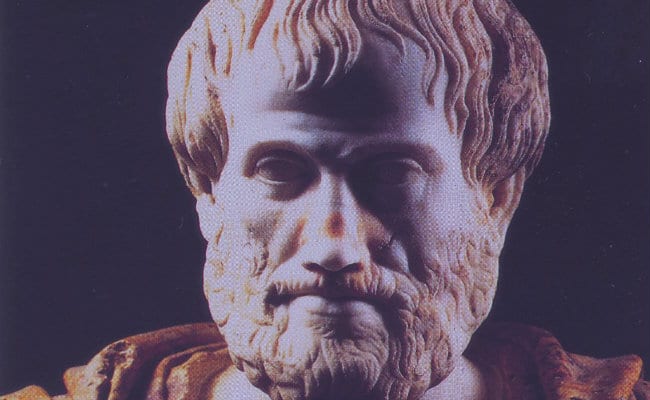The contributions of Aristotle They have brought about a significant change in the different areas that he approached, since despite the fact that these had already been studied or had some knowledge, it was this scientist, philosopher and logician who investigated them in a more systematic way; with which thus he managed to make surprising discoveries for the time.
What are the contributions of Aristotle according to the area?
Within the areas or fields where he worked we can find astronomy, biology, physics, aesthetics, philosophy, logic, metaphysics and rhetoric. In turn, it is known that this polymath managed to write more than one hundred and fifty treatises, but only thirty of them have been found.
Logic
The origin of the "logic" is attributed to him, since this one was the first in carrying out investigations on the different types of reasoning. In addition, it is interesting how, after this discovery, advances did not go backwards or forwards in this field many years later.

Syllogisms
The main contribution to logic, in addition to discovering it, was to create the model of syllogisms and syllogistics in general. According to the author, the following can be called a syllogism:
A discourse in which, established certain things, necessarily results from them, for being what they are, something else different. For example, "all men are mortal" and "all Greeks are men", which would bring as a consequence that “therefore, all Greeks are mortal".
Theory of valid inference (syllogistics)
This theory allows the validation of categorical syllogisms, which have different forms but are composed of the same structure: there is a subject and a predicate; at the same time that it also has three categorical propositions (2 premises and 1 conclusion).
Ethics
In ethics there were also several contributions by Aristotle, which is divided into different works. The Nicomachean Ethics, Eudamia and the Great Ethics; which together form 15 books. According to him, this researcher thought that the activity carried out by humans had a good in common, that is, that any action carried out by a person is done for some specific good.
Political philosophy
Aristotle, a faithful believer in the common good, devised a political philosophy according to the form of government, since according to him, the State was a community that aspired for the common good of the entire population; Therefore, according to their functions, there could be different types of State according to the search for the good.
Political regimes that seek the good of their citizens are called democracy (if many govern), aristocracy (if few govern) and monarchy (if only one governs); while those who do not seek the good are called tyranny (if only one governs), demagoguery (corruption of democracy) and oligarchy (degradation of the aristocracy).

Science
The contributions of Aristotle in the different sciences was of great help for their development, as in astronomy, biology, botany and zoology.
- In physics he contributed the five element theory (water, earth, air, fire and ether), which explained the origin of the phenomena observed at that time. This was in force until the scientific revolution initiated thanks to the contributions of Galileo Galilei.
- In astronomy, on the other hand, the geocentric theory explained how the earth was the center of the universe and it remained static. However, it was only valid until the arrival of the Copernican theory and later the refutation by Galileo.
- In biology, this is considered the father of science; since he wrote about a large number of species in great detail, such as their behavior, intelligence, anatomy and reproduction.
Botany and Zoology
In the field of botany, Aristotle classified the plant kingdom into plants that had flowers and those that did not, thus facilitating later botanists and ecological field researchers.
For his part, in zoology the scientist studied animals as well as in biology; only that this according to the studies, managed to classify them into invertebrates and vertebrates (according to bloodless and bloody).
In addition, this classification also had subdivisions, with bloodless animals being the mollusks, eutoma, ostracoderms and malacostraceans; while the bloody animals were the viviparous and oviparous fish, birds, quadrupeds.
Aristotle's contributions were really important for the development of all the fields he covered, so without him, possibly the findings would have been later or we would not have the knowledge that society has today.
I like this page, I like it for its good content
I do not understand how in such an advanced explanation Aristotle made this grammatical error: «Ethics: In ethics there were also several contributions by Aristotle (The word had in plural does not exist, the correct word is there)
According to the RAE, the word had does exist. Please inform yourself before correcting others.